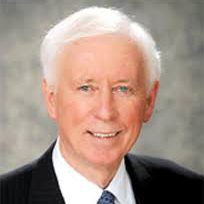Meeting Guardrails, Parliamentary Procedure
Physician delegates from around the state are here in Orlando for the annual meeting of the House of Delegates of the Florida Medical Association (FMA). The House of Delegates is the policy-setting body of the FMA. For the next three days 300 plus delegates will debate issues and decide on positions the FMA will take in support of the physicians of Florida and the patients for whom they care. In addition officers of the association will be elected and a new president, Walter A. Harmon, MD, a Gastroenterologist from Jacksonville, Florida will be installed. Dr. Ardis Hoven, President of the American Medical Association will address the House and I will report on her remarks in a subsequent blog.
For me this meeting annually is a return home. It was here 30 years ago that I first dipped my toe in the waters of leadership at the state level. What followed was a journey moving through officer ranks to ultimately serve as president of the FMA. Along the way I was the speaker of the House for six years and later served nine years as parliamentarian. This year I am honored to have been invited once again to serve in that role. I am thrilled because I thoroughly enjoy the intricacies of parliamentary procedure and believe strongly in the important role the rules of parliamentary procedure play in facilitating decision making by groups of people. These rules are the guardrails that guide and promote fair debate in a setting that preserves fairness and transparency.
In the U.S.A. deliberative bodies such as the FMA House are subject to the principles of parliamentary law. Parliamentary law is the code of rules and ethics for working together in groups. It is a system of rules, by which assemblies are conducted, that provides procedural safeguards and the fundamental principles of democratic discussion. These rules provide for the right of free and fair debate, the right of the majority to decide, and the right of the minority to be heard and be protected. The FMA uses as its parliamentary authority, the Standard Code of Parliamentary Procedure, 4th edition.
U.S. Supreme Court justice William O. Douglas talking about parliamentary procedure said; “Procedure is more than formality. Procedure is, indeed, the great mainstay of substantive rights…. Without procedural safeguards liberty would rest on precarious ground and substantive rights would be imperiled.”
Another justice, Felix Frankfurter said: “The history of liberty has largely been the history of observance of procedural safeguards.”
Winston Churchill insisted strongly on the right of members of a deliberative body to be heard. During the abdication crisis in 1936, he rose before a shocked House of Commons to discuss the constitutional question before a final decision was made. The House was in a hostile temper and a burst of disapproval greeted the great statesman. Churchill set his pugnacious jaw, and as the uproar subsided declared: “If the House resists my claim to speak it will only add more importance to any words that I may use.”
Thomas Jefferson, who developed the first set of parliamentary rules for the U.S. Congress, wrote about the essence of the democratic procedure of a free assembly being a procedure based on “equal and exact justice to all”.
In some circles it is popular to denigrate rules and regulations. And there are places in all our lives where they seem illogical and we chafe under what appear to be unreasonable restrictions. Improperly used parliamentary rules can obstruct and confuse. Properly applied they are essential guardrails for making our work together successful.

